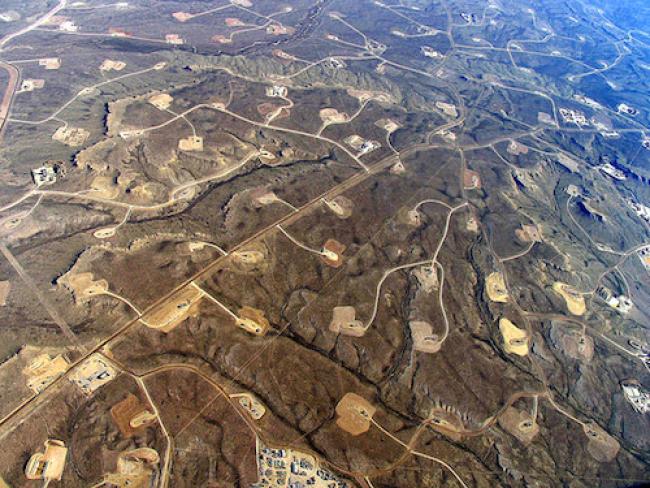Articles Menu

Feb. 2, 2022
The United States, Norway, and Canada are set to produce more oil this year than ever before, despite solemn pronouncements at last year’s COP 26 climate summit on the urgent need for climate action, Oil Change International asserts in a new analysis.
All three countries “like to see themselves as climate leaders,” Oil Change writes, recalling American president Joe Biden’s commitment to “doing our part,” Canadian prime minister Justin Trudeau’s call to “do more, and faster,” and Norwegian PM Jonas Gahr Støre’s urging to “jointly step up our commitments,” in their respective COP 26 speeches.
But those avowals were meant for last year, Oil Change says. “This is a new year, and instead of new commitments to double down on climate action, what do we see?”
According to U.S. Energy Information Administration forecasts, U.S. oil production in 2023 will surpass Donald Trump’s 2019 record for domestic crude production, courtesy of a drilling permit approval rate that surpasses that of Biden’s fossil-championing predecessor. The U.S. “has more oil and gas extraction expansion planned in the next decade than any other country,” Oil Change says.
Meanwhile, Canada’s Trudeau is proving to be another “climate hypocrite,” they write, citing a recent headline in the Wall Street Journal proclaiming that “one of the world’s dirtiest oil patches is pumping more than ever”.
And “we will continue to see growth,” added the WSJ, courtesy of domestic companies stepping into the breach left by international producers and investors who left due to climate concerns. Oil production is expected to continue in Alberta for at least two more decades, WSJ wrote, noting that fossils extracted more crude in last year’s third quarter than the same period a year earlier.
Oil Change also points to Canada’s ambitious plans to expand its fracking business with supports like the intensely controversial Coastal GasLink (CGL) pipeline. Fracked gas expansion plans are bigger than anything envisioned for the tar sands/oil sands, the group says, tweeting in January that “CGL is truly massive, and it’s a linchpin for many other megaproject plans in the works.”
Norway, meanwhile, has just announced a further 53 oil and gas licences, a number of them involving exploration in the ecologically sensitive Barents Sea.
Norway’s fossil industry “contributes with large revenues, value creation, and jobs across the country,” said Petroleum and Energy Minister Marte Mjos Persen. “Further exploration activity and new discoveries are crucial to develop the Norwegian petroleum industry further.”
These national-level fossil expansions come despite the International Energy Agency’s conclusion last May that any new investment in oil and gas will leave efforts to contain global heating below 1.5°C dead in the water. Then in August, the Intergovernmental Panel on Climate Change issued a landmark report urging leaders to halt oil and gas drilling or face heat waves, droughts, flooding, and other weather catastrophes. UN Secretary General António Guterres called the report “a code red for humanity,” but Oil Change says that message seems to have gone over the heads of some.
[Top photo: EcoFlight]